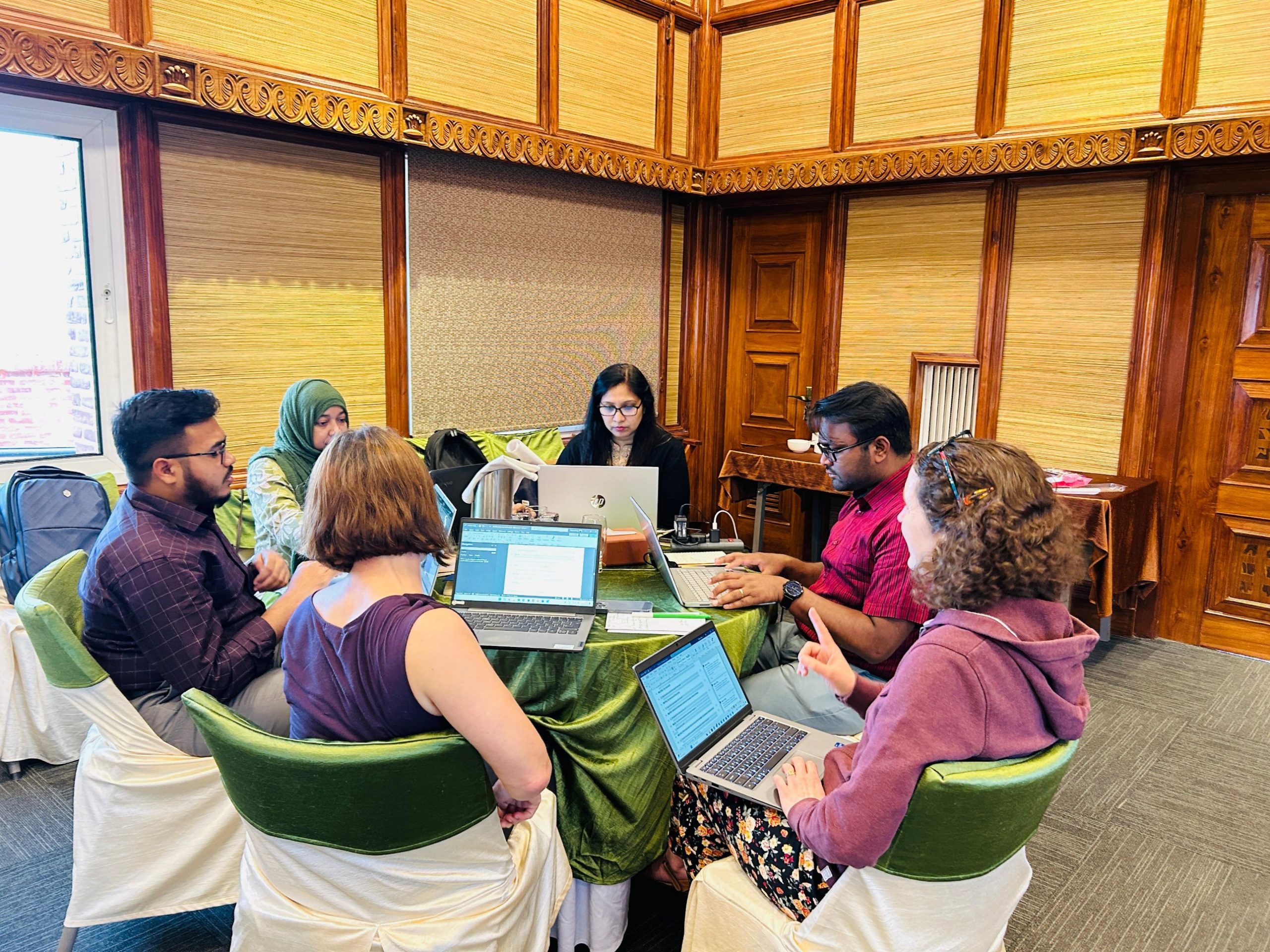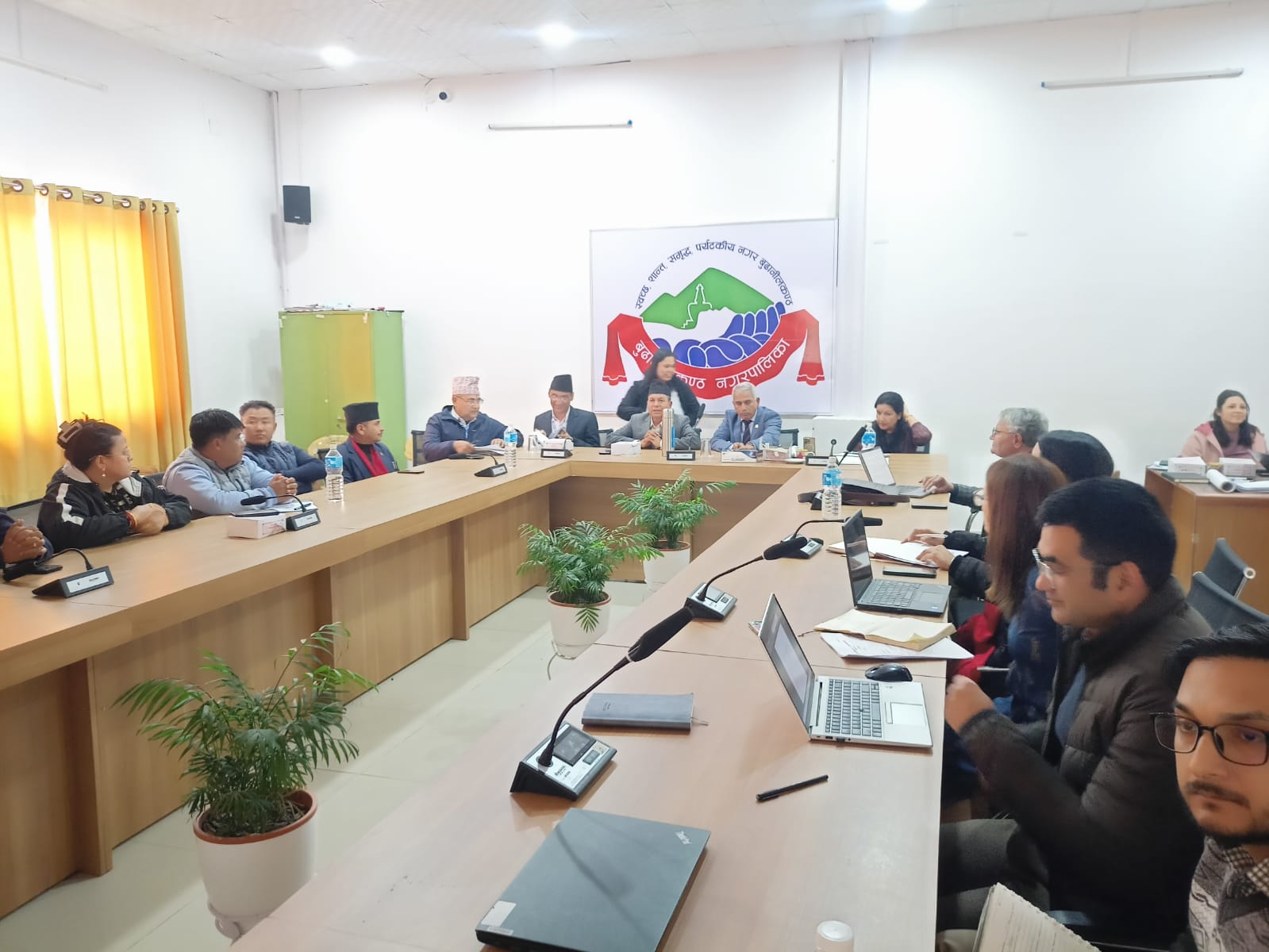Pokhara Metropolitan City, in collaboration with HERD International, organized two separate meetings on 14 and 16 November, 2024, for stakeholder involved in the Urban Health System Strengthening study. Participants in both meetings reviewed interventions to strengthen public-private partnerships to enhance services for patients with Non-Communicable Diseases (NCDs). The first meeting engaged private pharmacy representatives, while the second involved staff from public health facilities. Attendees included trainers of the Essential Package of Non-Communicable Disease (PEN) from Pokhara Academy of Health Sciences (PAHS), officials from the Provincial Health Directorate (PHD) of Gandaki Province, officials of Pokhara Metropolitan City Health Division, and HERD International researchers. Both events were chaired by Mr. Bharat Raj Poudel, Health Division Chief of Pokhara Metropolitan City.
The sessions included group activities to identify challenges faced during the initial quarter and explore mitigation strategies from the institutional, the Health Division and from HERD International. NCD experts from PAHS provided clarity on screening and referral processes for hypertension and diabetes patients. The statistical officer from the PHD clarified issues on recording and reporting process. The meetings also highlighted pressing issues of antimicrobial resistance and the irrational prescription of antibiotics.
These meetings provided a platform for clarifying doubts about recording processes and discussing steps towards digitization with the provincial representative and raising any further concerns or challenges. During the meeting with pharmacy representatives, participants raised concerns about time constraints for screening all the clients at risk. One pharmacy representative remarked, “Screening and recording all clients aged 40 and above is challenging, as most prefer quick services and often undervalue the importance of NCD screening which is critical for their age.”
Public health facilities brought forward logistical challenges hindering diabetes screening. A health facility in-charge stated, “While recording and reporting is part of our job description, limited access to glucometers and strips hampers our ability to screen for diabetes. Hypertension screening is manageable somehow.”
Despite these challenges, the stakeholders reaffirmed their commitment to this initiative. The pharmacy personnel appreciated municipal efforts and HERD international technical guidance to establish the public-private linkage model, allowing opportunities to collaborate directly with the local government.










